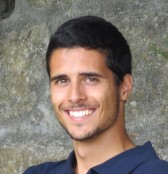Density Matrix Renormalization Group
By: J. Motruk
Lecture on DMRG
Date: 27-28 April 2022
Time: 16h30-18h30 (Wed & Thu)
Place: Manep seminar room
Lecture on DMRG
Date: 27-28 April 2022
Time: 16h30-18h30 (Wed & Thu)
Place: Manep seminar room
Lecture on Quantum Monte-Carlo
Date: 23-24 February 2022
Time: 16h30-18h30 (Wed & Thu)
Place: Manep seminar room
Lecture on exact diagonalization
Date: 13-14 December 2021
Time: 16h30-18h30 (Monday & Tuesday)
Place: Manep seminar room
Lecture on dynamical mean-field theory
Date: 22-23 November 2021
Time: 16h30-18h30 (Monday & Tuesday)
Place: Datcha seminar room
Lecture on density functional theory
Date: 12-13 March 2020
Time: 16h-18h (Thursday)
Time: 12h30-14h30 (Friday)
Place: Datcha seminar room
Some important informations
Young theorists often find themselves having to learn new numerical and analytical tools for their careers. More often then not, this is a painful process full of setbacks and wasted hours. We aim to help a bit... TBXS is a set of self-contained lectures where you will gather all the necessary ingredients to sucessfully use a new tool in your work. You will also learn the most common pitfalls, saving you time and neurons!
Anyone interested in learning new methods to solve many-body problems. Unless stated otherwise, TBX seminars don't require previous knowledge beyond Quantum Mechanics and basic programming skills.
Hope not! Unlike other talks, the TBXS is not intended for you to learn some cutting-edge topic in an area nor do you need any previous knowledge. A TBXS must be self-contained and focused on a specific tool which can be used to tackle different problems. During the lecture you will actually get your hands dirty and apply the tool!
Yes. Traditionally, when introducing some tool we start from the theoretical context and it takes several hours of coursework to get to the first running code or the first solved problem. Here, we instruct the speakers to directly jump to the simplest possible application of the tool and gradually increase the complexity from there. At the end of a TBXS, you should know how to apply the tool, its limitations and most common pitfalls.
The seminars will be held in the Datcha seminar room, between École de Physique and Sciences I. Enter the Datcha building from the main door (next to the ticket machine), climb the stairs, enter the corridor ahead and voilà.
Any motivated graduate and post-graduate student with expertice in some relevant tool. Relevant tools should be applicable to solve at least a large class of problems in many-body physics.
We know that preparing a lecture takes some time and effort but it is not wasted effort. At the end of the TBXS, series we will compile the lectures notes and send them to publication in SciPost.
Send us an email to toolbox@unige.ch and let's chat. Once the topic is approved, you can start working on the lectures notes and slides using the templates below.

Organizer

Organizer

